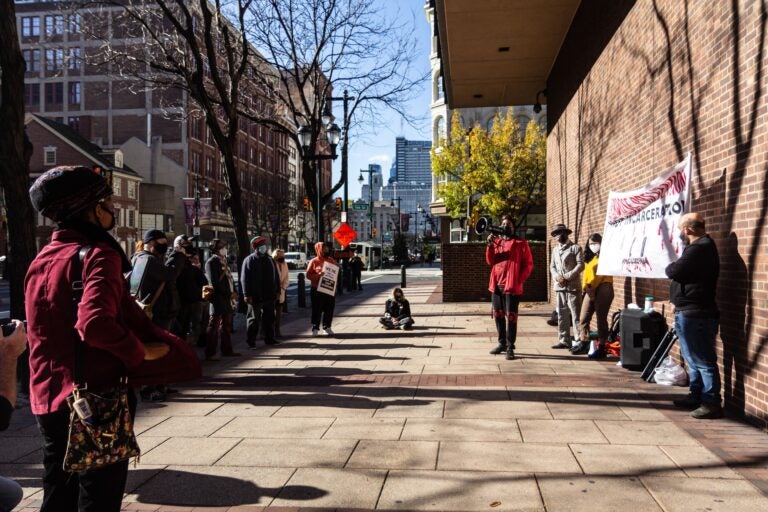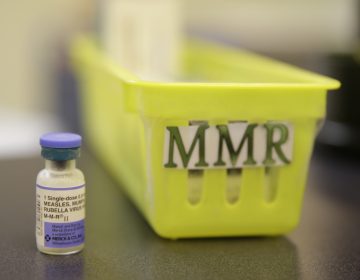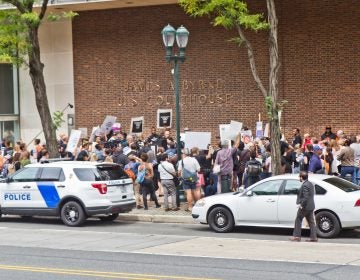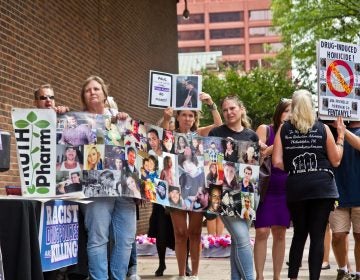Safehouse supervised injection settlement talks fail as the DOJ pushes to dismiss civil lawsuit
Safehouse first entered settlement negotiations with the U.S. Department of Justice in early 2022.

File photo: Supporters of Safehouse, Philadelphia’s proposed supervised injection site, rallied outside the federal courthouse in 2020. (Kimberly Paynter/WHYY)
A Philadelphia nonprofit and the U.S. Department of Justice are headed back to court after failing to agree over the legality of supervised injection sites in settlement negotiations that began a year and a half ago.
In a notice to community members Wednesday, Safehouse leaders doubled down on their plan to argue for the legal right to operate a site where people can use illegal substances under the supervision of experts who can intervene during overdoses.
Meanwhile, the DOJ recently filed to dismiss the civil case and committed to defending the federal Controlled Substances Act, which prohibits the opening of any place for the sole purpose of manufacturing, selling, or using drugs.
In its lawsuit, Safehouse argued that its plan to open a supervised injection or safe consumption site is legally protected on religious grounds and the First Amendment. The nonprofit stated that its leaders’ religious practices are driven by saving lives, including those who die from drug overdoses.
“We are pained that as the overdose death rate increases every year, the government is preventing us from following our deeply held religious convictions,” Dr. Frank James III, Safehouse board member, said in a statement. “The data show that overdose prevention sites save lives, and we are committed to saving lives.”
In new court documents, the DOJ argued that Safehouse is not a religious organization. Federal prosecutors said the nonprofit’s claim that current federal law prohibiting supervised injection sites “substantially burdens religious exercise” is unfounded.
“There are many ways for Safehouse’s board members to exercise their broadly stated religious beliefs that do not involve maintaining a facility for individuals to consume drugs,” DOJ officials wrote.
The lawsuit is ongoing. Safehouse has an Aug. 15 deadline to respond to DOJ’s motion to dismiss. The federal government will then have until Sept. 8 to respond.
Safehouse supporters say supervised injection sites can help prevent fatal overdoses. Data from sites and programs in Canada, Europe, and Australia support those outcomes.
Philadelphia recorded 1,276 unintentional drug overdose deaths in 2021, the highest ever reported for the city.
However, many City Council members and a group of more than 20 community business owners, residents, and leaders stand opposed to the opening of such a site in their neighborhoods.
The latter group filed a request to intervene in the Safehouse case against the DOJ. United States District Court Judge Gerald Austin McHugh denied that request Monday following the Justice Department’s interest in dismissing the case.

Get daily updates from WHYY News!
WHYY is your source for fact-based, in-depth journalism and information. As a nonprofit organization, we rely on financial support from readers like you. Please give today.






